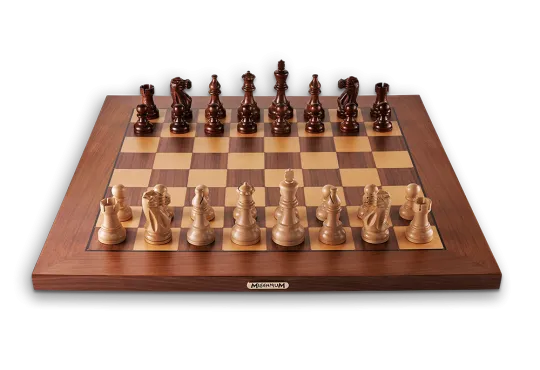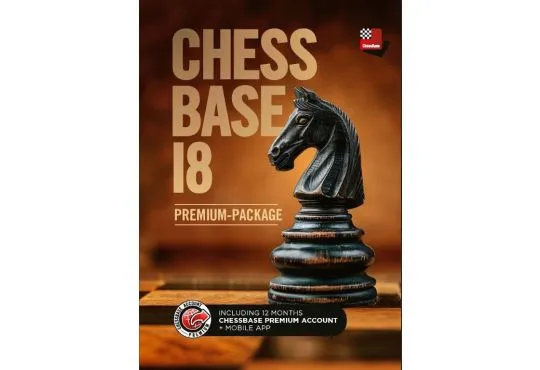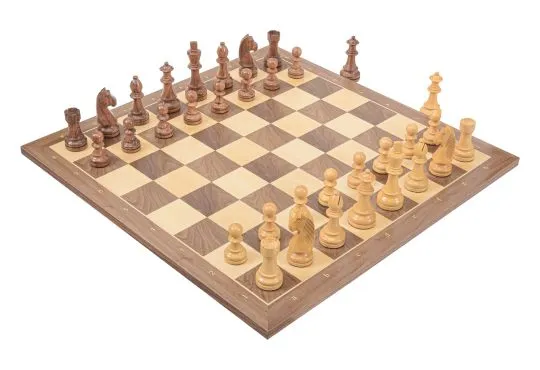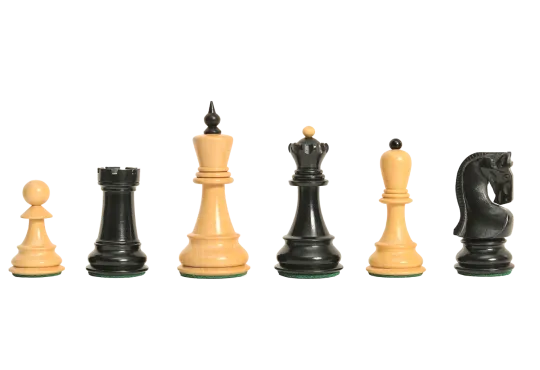Rules of Chess: 10 to Know Before Your Next Tournament
Hearing that you broke some obscure chess rule is the last thing you want on the first day of your tournament.
Preparing for a chess tournament, you will likely study hard to ensure you are playing at your best. Hopefully, you will arrive well-prepared to win chess matches. What you may not be prepared for are some of the lesser-known, idiosyncratic rules that chess tournaments enforce.
If you are entering a chess tournament, you’ve certainly figured out how the knight moves and what castling is. You’ve likely got en passant under wraps as well.
But what about the specifics of the touch-move rule? Can you adjust your pawn before moving your queen? Do you still have to record moves under time pressure? What are you allowed to wear?
Here are some simple explanations of 10 lesser-known tournament rules.

Table of contents
Essential Game-Play Rules
These are essential rules that dictate gameplay in chess tournaments. Bear in mind that many have not been included here.
For basic special moves in chess, like en passant and castling, take a look at this guide.
1. Touch-Move Rule
If a player touches a piece, they must move it. This rule does not apply if that piece has no legal moves or if the player touched it accidentally (for example, while reaching for another piece).
This can be a tricky one. Touching pieces can be a natural, even unconscious action. Making a habit of avoiding it and learning to consider your moves mentally, can ensure this rule doesn’t get you into trouble.
-
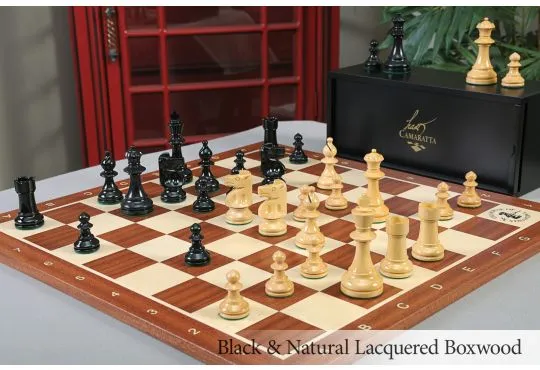 Free Worldwide Shipping
The Liberty Tournament Series Wood Chess Set Combination Enjoy Savings of 23% Off MSRP When Purchased as a Combination
Free Worldwide Shipping
The Liberty Tournament Series Wood Chess Set Combination Enjoy Savings of 23% Off MSRP When Purchased as a Combination$347.95
Starting at $269.00
To $358.95
-
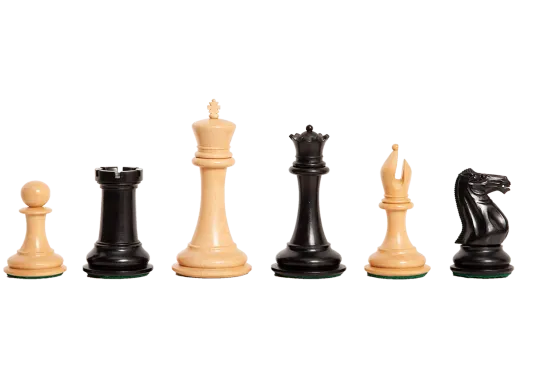 Free Worldwide Shipping
The Camaratta Collection - The 1849 Collector Series Luxury Chess Pieces - 4.4" King
Free Worldwide Shipping
The Camaratta Collection - The 1849 Collector Series Luxury Chess Pieces - 4.4" KingStarting at $529.00
To $7,469.00
J’adoube
Part of the touch rule is that you must announce when you are adjusting your pieces without intending to move them.
According to the official rules of the FIDE Handbook, the player must announce this by saying “J’adoube” or “ I adjust.” You can also only adjust your pieces when your clock is running.
2. One-Hand Rule
In tournaments, players must make their moves with only one hand. You must use the same hand to press the chess clock to stop your time and begin your opponent's.
This can be easy to forget, especially with castling or taking an opponent's piece, which feels natural to do with two hands. There are many cases of this rule being enforced in top tournaments.
3. The 50 Move Draw
In classical chess, players have a lot of time for each game. This gives rise to a few specific rules.
Similar to the better-known draw-by-repetition rule, after 50 moves in which no pawn moves or captures are made, a player can claim a draw. This is much rarer than draws by repetition.
4. Recording Moves
In classical chess, players must record their moves on a score sheet using algebraic chess notation. This is an important rule of tournament play and understanding how to do it correctly can save you time and stress.
-
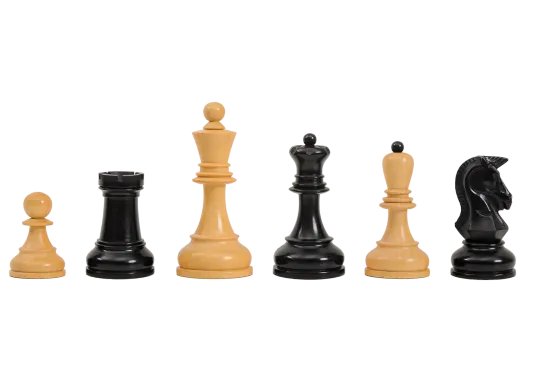 Free Worldwide Shipping
The DGT Projects Enabled Electronic Chess Pieces - Dubrovnik Series - 3.75" King
Free Worldwide Shipping
The DGT Projects Enabled Electronic Chess Pieces - Dubrovnik Series - 3.75" KingStarting at $549.00
To $1,828.00
-
 Free Worldwide Shipping
The Superior Grandmaster Chess Set, Box, & Board Combination Enjoy Savings of 24% Off MSRP When Purchased as a Combination
Free Worldwide Shipping
The Superior Grandmaster Chess Set, Box, & Board Combination Enjoy Savings of 24% Off MSRP When Purchased as a Combination$457.00
Starting at $349.00
To $428.95
When to Write Your Move
You have to make a note of each move directly after you play it. This should be done during your time, before pressing the clock, and after you have made your move.
Under Time Pressure
Players can stop recording moves when they have less than 5 minutes on the clock. This is the only instance in classical chess when players can stop recording their moves on the score sheet.
For players scrambling in a king and rook endgame or rushing pawn moves, there is little time to record moves.

Fair Play Rules
Rules regarding cheating are generally referred to as fair play rules. Chess tournaments have faced many cheating scandals in recent years, so it is more important than ever to have a good understanding of the rules of fair play.
5. Notes and Electronic Devices
You are not allowed to have any kind of electronic device or study notes on your person during a chess match. Whether in your pocket or a bag, this can lead to disqualification from the tournament.
6. Computer-Assisted Cheating
As you likely know, it is not allowed to use chess engines during tournaments.
What you may not know is that in both online and over-the-board tournaments, organizers use fair play software to detect computer-assisted cheating.
The FIDE Game Screening Tool is commonly used in online tournaments. While the software is not enough to decide absolutely whether a player has cheated, it indicates whether a certain game needs to be reviewed.
7. Multiple Draw Offers
It is considered unsporting and is often outright banned to offer draws in quick succession. As you can imagine, constantly receiving a draw offer would be distracting and frustrating.
Other Chess Tournament Rules
8. Dress Code (and the Infamous “Cleavage Rule”)
The fact that chess tournaments have a dress code may not be surprising, but some of the specifics may be. Dress codes vary, but often prohibit non-religious headwear, certain kinds of jewellery, and ripped or torn clothing.
A controversial rule banned women from wearing low-cut tops or short skirts during European Chess Union Tournaments. For many players and commentators, the “cleavage rule” seemed arbitrary and sexist, considering that the rules for men seemed to have no comparable clause.
9. Silent Zones and Communicating with Players
Tournament organizers tend to designate quiet or silent zones for play. In these zones, spectators and coaches cannot make noise or communicate with the players. Arbiters will be on the lookout, not only for verbal communication but also for other kinds of signals that could be reaching the players. Players also cannot communicate with each other during play.
The consequences for these actions may vary, but will usually only merit a warning rather than a disqualification or time penalty.
-
 Free Worldwide Shipping
The Magnus Carlsen Luxury Signature Casket & Chess Set Combination Enjoy Savings of 30% Off MSRP When Purchased as a Combination
Free Worldwide Shipping
The Magnus Carlsen Luxury Signature Casket & Chess Set Combination Enjoy Savings of 30% Off MSRP When Purchased as a Combination$479.00
Starting at $335.00
To $398.00
-
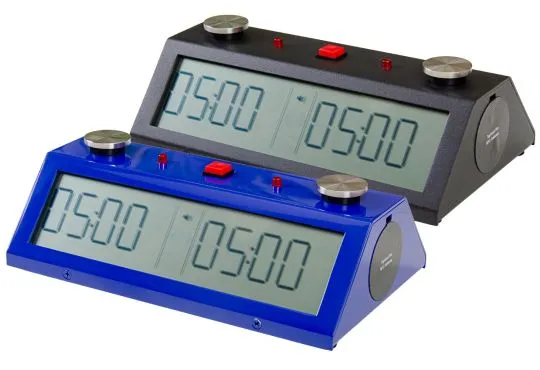 Tap N Set Pro Digital Chess Clock The Official Chess Clock of the US Chess Federation - The World's Only Smart Phone Programmable Clock
Tap N Set Pro Digital Chess Clock The Official Chess Clock of the US Chess Federation - The World's Only Smart Phone Programmable ClockStarting at $124.95
To $129.95
10. Leaving the Tournament Arena
Usually, you cannot leave the playing area without informing the arbiter. For example, if you need to use the bathroom during a classical chess game, you may have to let someone know. Additionally, you can only leave while your clock is running.
Know Your Tournament Rules
A chess tournament is an intimidating place, but organizers are usually accommodating and keen to explain any rules you are not sure of. That said, arbiters will enforce the rules. This can take the form of warnings and time penalties, but in serious cases can lead to disqualification.
If you have any doubts, get in touch before the tournament. Feeling comfortable with the rules of chess means you can relax and focus on the game.
For further reading, consider taking a more in-depth look at the US Chess Federation's Official Rules of Chess.
Frequently Asked Questions
Yes. Except when you have less than 5 minutes on the clock.
Yes. Arbiters enforce rules about when and how to touch the pieces. This includes moving the pieces with only one hand.
Tournaments have different dress codes but for safety it is advisable to wear something simple and professional, avoiding non-religious headwear and excessive jewellery.


